Total Quality Management Culture
Total Quality Management Culture is probably the hardest to implement. The best method to describe the changes in a culture that will happen – or should happen - I would like to show you are on the basis of examples.
These examples are divided into the three core focus areas of Total Quality Management Culture:
1. The approach to the customer
2. Our employees
3. The Production Processes
The Approach To The Customer
|
The role of the customer: The customer is obviously important as he pays our wages. However, we often know best and it is therefore in his own interest to let us get on with production and leave us alone |
Total Customer Focus: We exist to serve the customer; without him we are nothing. It is essential that everyone in our organisation believes this message and lives this message. |
|
Customer Satisfaction: Our Customers are also loyal and trusted friends. They’ve been with us for years. We’ll be alright. |
Continuous Improvement for the Customer: We need to continually improve everything we do in order to consistently satisfy our customers. |
|
Quality: We know we’ve done a good job. |
Customer-perceived Quality: Meeting the needs of the customer takes precedence. If the customer says it’s poor quality, it is poor quality. If the customer says it’s excellent, then it’s good but we can do better. |
|
Who is the customer?: The person who buys our product. |
Who is the Customer?: We have many customers. Certainly the people who buy our products are customers but so are our employees. Everyone in the production process is a customer of the previous person (supplier). All of our customers have the same rights to expect quality in everything we do. |
|
Work Priorities: Maintaining high levels of production, keeping the system working and many others. |
Work Priorities: Quality must always be the first priority. No explanation required. |
Total Quality Management Culture in
The Approach to Employees
|
They are Subordinates: They are People Focus on the task. Our subordinates are the “means to an end”. It is unfortunate, but without them we will achieve nothing. |
Concentrate on the People. It is the people who make the system work. It is the people who work the process. Without them we are nothing. It is the people who make the difference! |
|
Shared Culture: Never mind culture, we have targets and objectives to be achieved. |
Shared Culture: A healthy shared quality culture is essential to achieving excellent performance. We need to develop and constantly work at maintaining a quality culture so that everyone habitually strives for and achieves total quality in everything we do. |
|
Involving People: The average human dislikes work and will do everything possible to avoid getting involved. |
Involving People: We all need to genuinely believe in the value of all our people and desire their involvement as everyone has imagination, ingenuity and creativity just waiting to be used. |
|
Change: We’ve always done it this way. It’s worked for us in the past and I see no reason to change it now. |
Change: It is essential that we have an expectation of change, and encourage others to share this expectation. |
|
Feedback: I give the feedback around here. If you hear nothing then everything must be okay, but don’t worry, I’ll let you know when you get it wrong! |
Feedback: It is essential that we create an environmental (by doing) in which everyone welcomes and encourages feedback on their performance and how it affects others. (The king has no clothes on). |
|
Working to Benefit others: What can my subordinates give me and the department? What can I get out of them? |
Working to benefit others (adding value) I need to make other people feel important, therefore how I behave, the words I use, the gestures I make are very influential. “What can I do today which can help others achieve?” |
|
Management Philosophy: People are basically lazy, irresponsible, avoid responsibilities, need direction and lack ambition. The only solution is to be authoritarian. |
Leadership: People have different needs in different circumstances therefore leadership should be determined by the particular situations. |
|
Instruct on managerial requirements: Send a memo. Out it on the board. On occasions (once or twice a year) tell people what you require of them. |
Articulate the TQM Philosophy: Regularly talk to people sincerely about what you believe (TQM). Listen to others views on this, respond positively to questions on TQM, check out people’s understanding. This requires two-way communication – not a lecture! Share your vision. |
|
“I’ll be in my office” Manager spends a lot of time in the office – a bit remote. |
Visibility and accessibility Walk the floor regularly – let people know you’re there, you are interested and you care. Let people know that their problems are yours. Be aware that this is a high priority item for you and not something to do if you have the time. You fit in other things around this not vice versa. |
|
Be the Boss: Controls others. Tells people what to do. Wants to be “in charge”. Unconcerned with developing people. It’s the manager’s job to generate ideas – employees “do as they are told”. |
Be a coach: Be a good communicator, develop coaching skills and use them regularly. Constantly look for development opportunities. Help people to be winners! |
|
Highlight weaknesses: Let people know what they are not very good at and tell them to pull their socks up. |
Build on strengths: Everyone has strengths – recognize them and share this recognition. Provide opportunities for using and developing these strengths. There is no such thing as a weakness – only areas of improvement. Be aware of these, share this awareness and develop skill appropriately |
|
Accountability is the manager’s. |
Accountability is shared. People need to know and feel that they own and are responsible for their own work. Accountability must be shared and the areas of accountability need to be explicit. |
|
Self-Esteem: Self-esteem is power-based. My authority and my position are important to me. |
Self-esteem: Leaders’ self-esteem comes from supporting and nurturing others and feeling good about this process and its benefits. |
|
Managing: This is about control and authority. |
TQM: TQM means leading and serving the employee as they are customers too. |
|
Fundamental Beliefs (Authoritarian): “Sticks and carrots” |
Fundamental Beliefs (Humanist): It is important to listen to people. It is important that I accept people’s perceptions and feelings and respond to their needs, based on what would help them to feel good as opposed to what would make me feel good. |
|
Trust: Give ‘em an inch and they’ll take a mile. |
Trust: We must trust each other. |
Total Quality Management Culture in
The Production Process
|
Production: Production is hierarchically structured with: External Suppliers Managers Workers External Customers |
Production: Production is a process based on a supplier / customer relationship. |
|
Emphasize speed and flexibility |
Emphasize speed and flexibility i.e. to be responsive to change. |
|
The Manager is responsible. |
Everyone is responsible for TQM. |
|
The business should be forward-looking. |
The business must be forward-looking. |
|
Believes in directing and controlling. |
Believes in Managing the process |
|
Improvement is important but often difficult to measure. |
Believes in constantly measuring for improvement. |
|
Improvement. We can continually improve the process and reduce waste. What we need to do is involve our people because there lie the answers |
 |
Please note that this set of expressions on Total Quality Management Culture came from a book called “Training for Total Quality Management” by Jeffries, Evans and Reynolds. |
Conclusion:
I really like this collection of aspects, from the traditional manager’s viewpoint to the TQM manager’s viewpoint on the difference between previous and Total Quality management culture.
Now, a word of caution: any transition into a new Total Quality Management culture should be slow and gentle. It will help to communicate these ideas to your colleagues and employees.
As with the introduction of any new system, the introduction of a new Total Quality Management Culture must be dealt with as with any change management project: Managed and Rewarded.







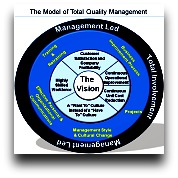
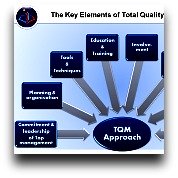
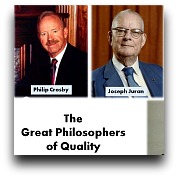

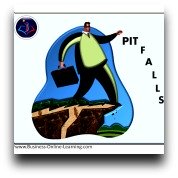
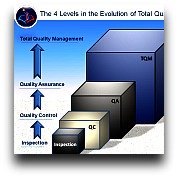
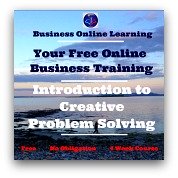
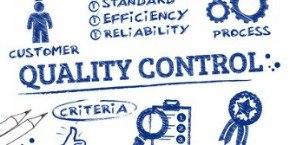

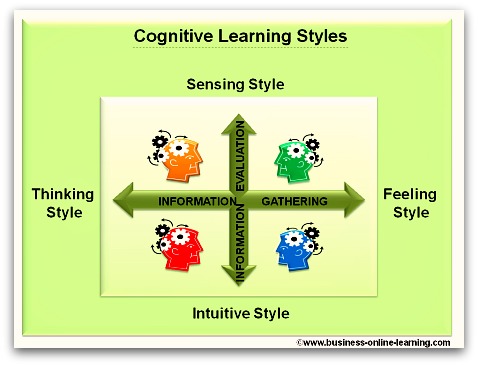
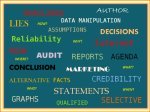
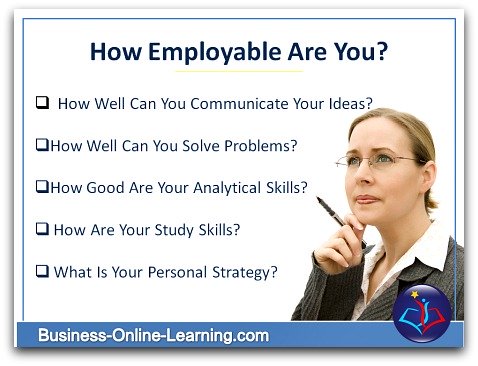
 My name is Martha and I have worked for over 30 years in various aspects of business and in various countries, right around the world.
My name is Martha and I have worked for over 30 years in various aspects of business and in various countries, right around the world.